You are here
New Releases
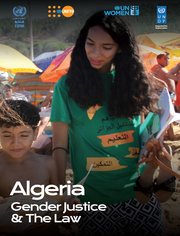
Gender Justice & the Law: Algeria
UNFPA, in partnership with UNDP, UN Women, and ESCWA, has conducted a study on Gender Justice and the Law in the Arab States region to provide a comprehensive assessment of laws and policies affecting gender equality and protection against gender-based violence in the Arab states region. The study is composed of an introductory piece that describes the background, rationale, analytical framework and methodology, and a total of 18 country profiles. Each country profile maps the country’s key legislative and policy developments regarding gender justice. This country profile presents the findings of the study relating to Algeria.
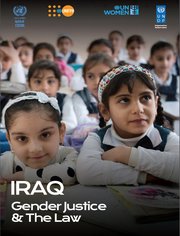
Gender Justice & the Law: Iraq
UNFPA, in partnership with UNDP, UN Women, and ESCWA, has conducted a study on Gender Justice and the Law in the Arab States region to provide a comprehensive assessment of laws and policies affecting gender equality and protection against gender-based violence in the Arab states region. The study is composed of an introductory piece that describes the background, rationale, analytical framework and methodology, and a total of 18 country profiles. Each country profile maps the country’s key legislative and policy developments regarding gender justice. This country profile presents the findings of the study relating to Iraq.
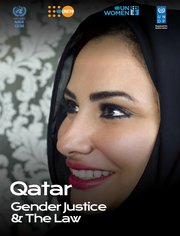
Gender Justice & the Law: Qatar
UNFPA, in partnership with UNDP, UN Women, and ESCWA, has conducted a study on Gender Justice and the Law in the Arab States region to provide a comprehensive assessment of laws and policies affecting gender equality and protection against gender-based violence in the Arab states region.
The study is composed of an introductory piece that describes the background, rationale, analytical framework and methodology, and a total of 18 country profiles. Each country profile maps the country’s key legislative and policy developments regarding gender justice. This country profile presents the findings of the study relating to Qatar.
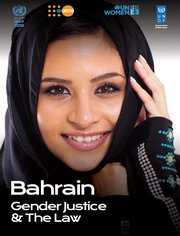
Gender Justice & the Law: Bahrain
UNFPA, in partnership with UNDP, UN Women, and ESCWA, has conducted a study on Gender Justice and the Law in the Arab States region to provide a comprehensive assessment of laws and policies affecting gender equality and protection against gender-based violence in the Arab states region. The study is composed of an introductory piece that describes the background, rationale, analytical framework and methodology, and a total of 18 country profiles. Each country profile maps the country’s key legislative and policy developments regarding gender justice. This country profile presents the findings of the study relating to Bahrain.
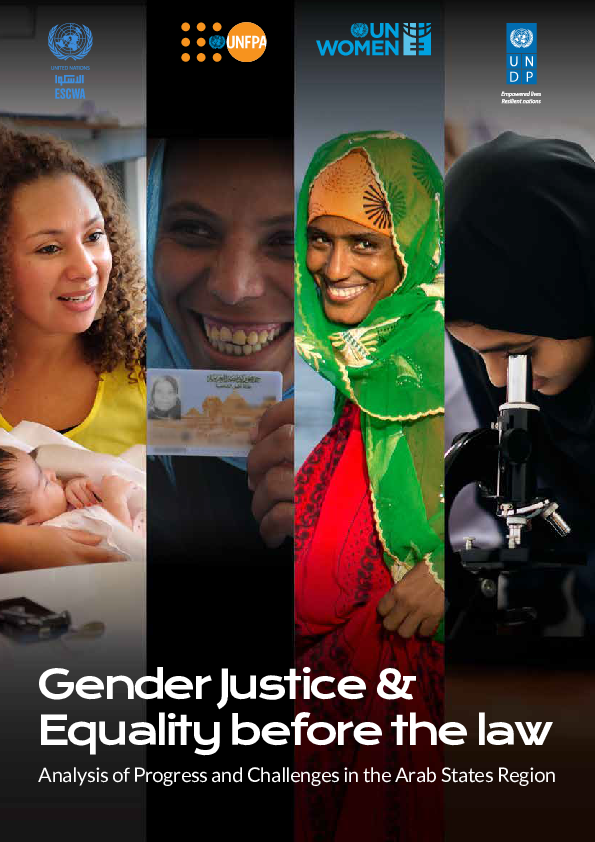
Gender Justice & Equality before the law
This report marks the culmination of an ambitious four-year project that commenced in 2016. The Gender Justice and the Law project engaged governments, civil society organizations and UN agencies in 19 Arab States, as well as regional agencies.
This report documents the progress achieved to realize the aspirations of the Muscat Declaration and analyzes the remaining challenges that States face in their ongoing efforts to make gender justice a reality for all.
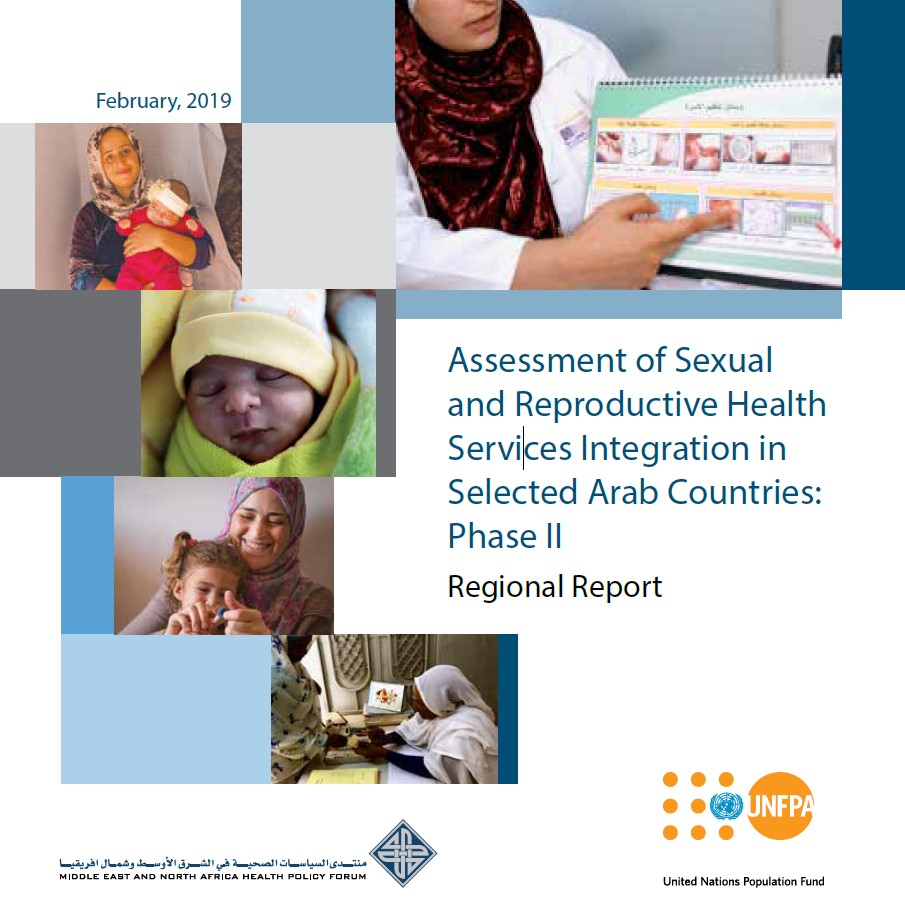
Assessment of Sexual and Reproductive Health Services Integration in Selected Arab Countries: Phase II
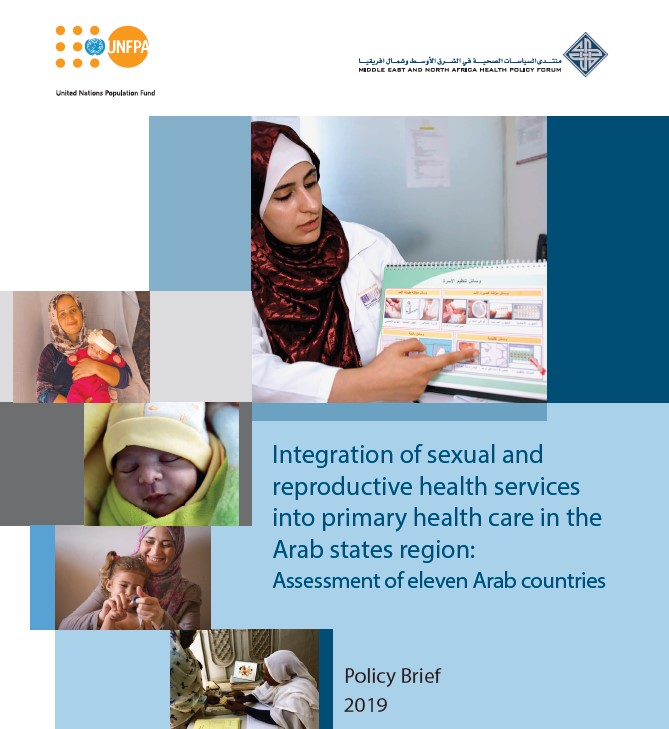
Integration of sexual and reproductive health services into primary health care in the Arab states region: Assessment of eleven Arab countries
For decades, the Arab States have emphasized maternal health care, child health, and family planning in primary health care, reflecting the priorities governments have placed on these issues. Strategies or policies to guide the integration of a full package of sexual and reproductive health (SRH) services, including family planning and HIV/AIDS, have been largely absent. This brief uses assessments of the situation in 11 Arab countries to describe the challenges of integrating such care at the primary health care level, and it then makes recommendations for moving forward.
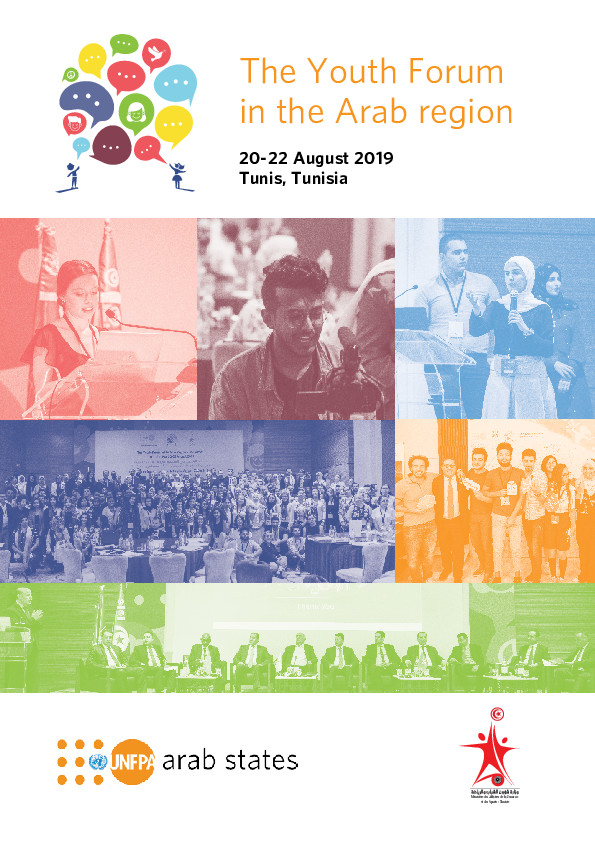
The Youth Forum in the Arab region
Youth in the Arab Region face huge challenges that limit their employment prospects and restrict their potential to become fully participating members of society. Inadequate health and education services deny them access to quality, youth-friendly health services and the vital life skills they should be entitled to, all because they are subject to the significant impact of conflicts, terrorism, instability and the myriad forms of migration. Yet, in spite of all this, youth constitute an unprecedented opportunity for their countries and the region as catalysts for a sustainable future.
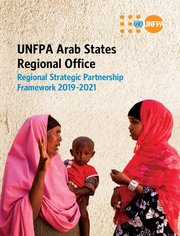
Regional Strategic Partnership Framework 2019 -2021
In 2011, the Busan Agreement for partnership for effective development cooperation was launched within the framework of the Fourth High level Forum on Aid Effectiveness. The Busan Agreement highlighted four principles for all development actors that are key to making development cooperation effective. These include ownership of development priorities by developing countries; a focus on results; partnerships for development involving the participation of all actors recognizing the diversity and complementarity of their role; transparency and shared accountability.

Unbroken: Stories of Syrian adolescent girls
This publication is dedicated to Syrian adolescent girls throughout the region, many of whom are grappling with enormous challenges on a daily basis and yet continue to defy numerous odds to fight for their basic human rights.